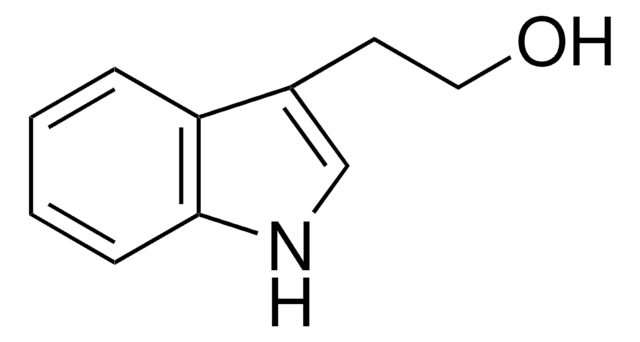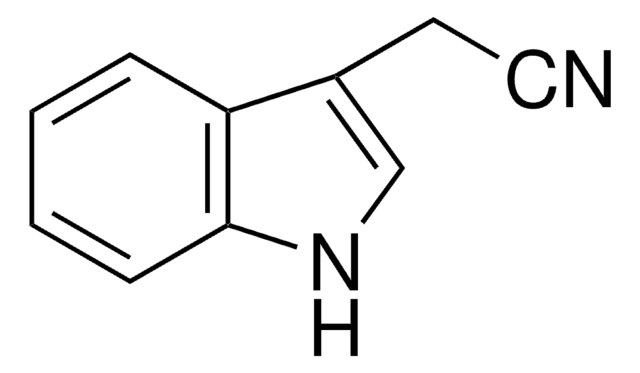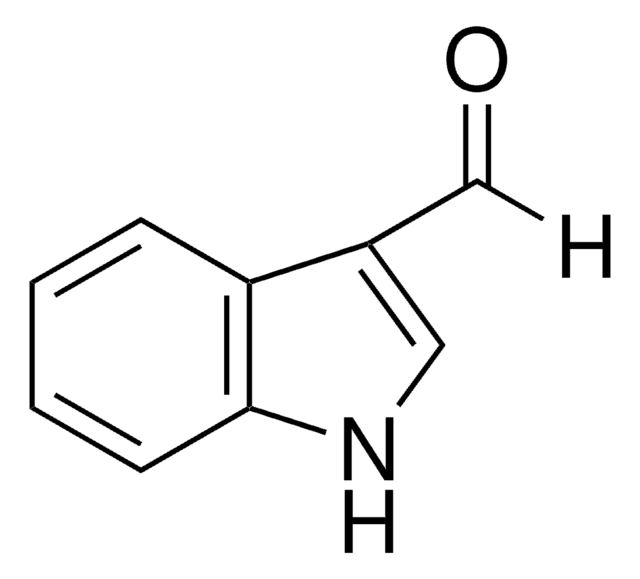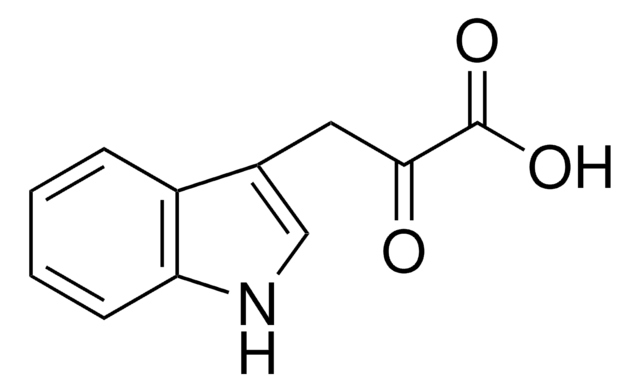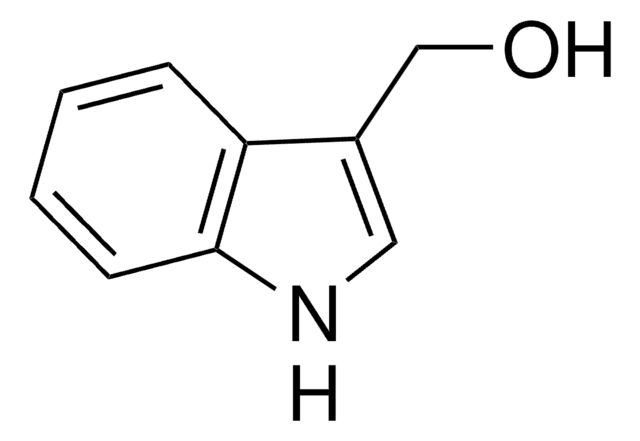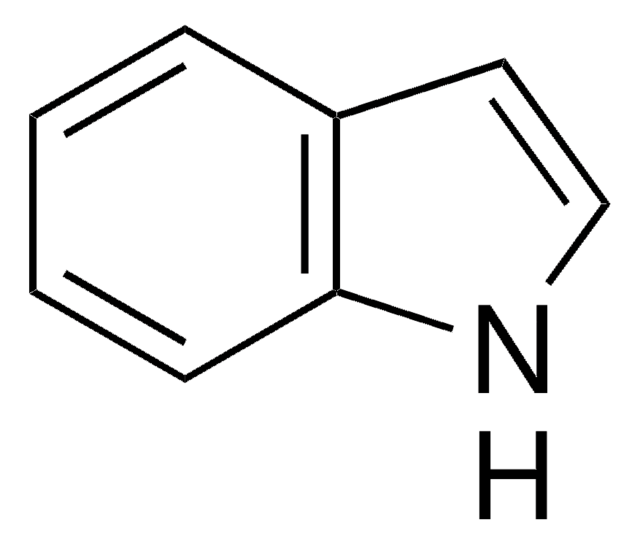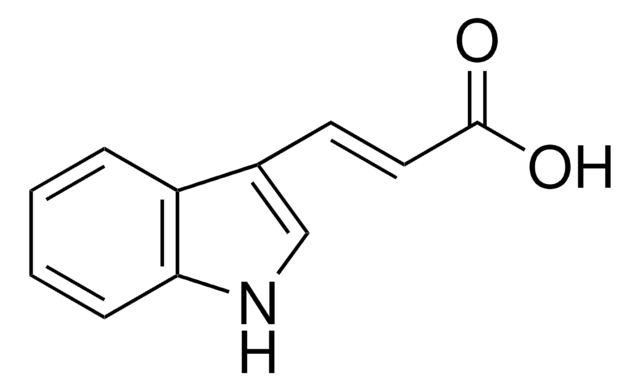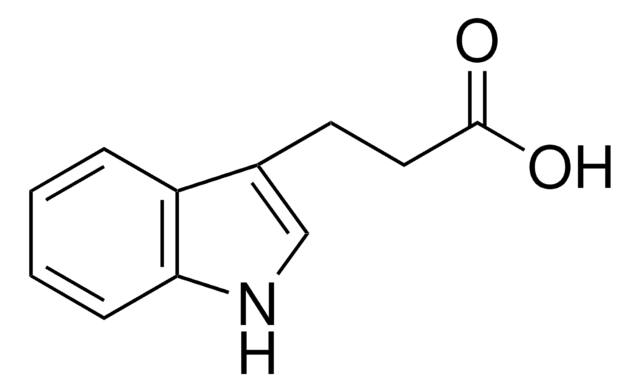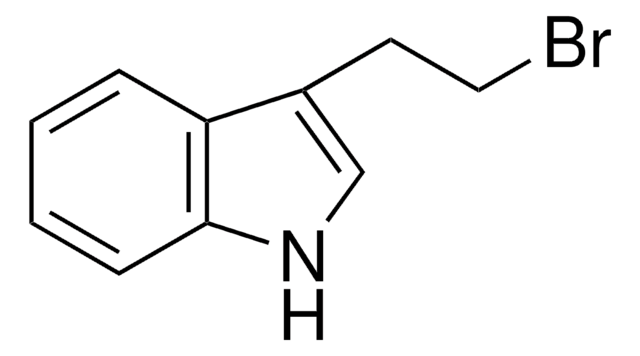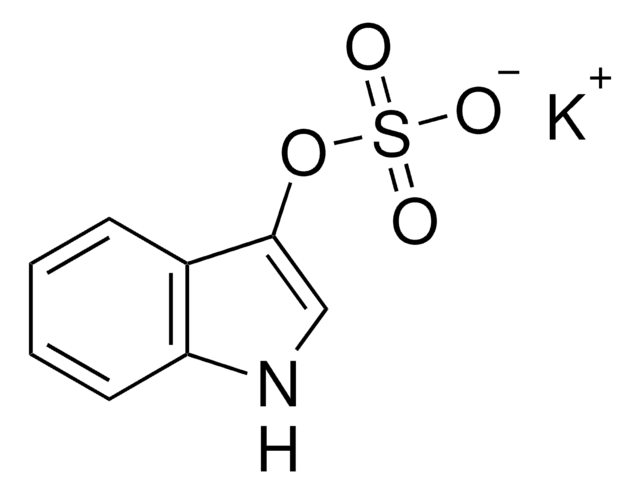286281
Indol-3-acetamid
98%
Synonym(e):
3-Indolylacetamide, NSC 1969
Anmeldenzur Ansicht organisationsspezifischer und vertraglich vereinbarter Preise
Alle Fotos(1)
About This Item
Empirische Formel (Hill-System):
C10H10N2O
CAS-Nummer:
Molekulargewicht:
174.20
EG-Nummer:
MDL-Nummer:
UNSPSC-Code:
12352100
PubChem Substanz-ID:
NACRES:
NA.22
Empfohlene Produkte
Qualitätsniveau
Assay
98%
mp (Schmelzpunkt)
148-150 °C (lit.)
SMILES String
NC(=O)Cc1c[nH]c2ccccc12
InChI
1S/C10H10N2O/c11-10(13)5-7-6-12-9-4-2-1-3-8(7)9/h1-4,6,12H,5H2,(H2,11,13)
InChIKey
ZOAMBXDOGPRZLP-UHFFFAOYSA-N
Allgemeine Beschreibung
Indole-3-acetamide is an auxin precursor.
Anwendung
Indole-3-acetamide was used in the synthesis of [5.5.6.6]diazafenestrane skeleton and indole-3-acetic acid.
Reactant for the synthesis of:
- PET agent for imaging of protein kinase C
- A potential agent against Prion Disease
- Protein kinase C (PKC) inhibitor bisindolylmaleimide IV
- Glycogen synthase kinase-3ß (GSK-3ß) inhibitors
- Inhibitors of CaMKIId
- A VEGF inhibitor
- JAK3 inhibitors
- Inhibitors of NAD+-Dependent Histone Deacetylases
- Inhibitors of human adipocyte fatty acid-binding protein
- Cyclin-dependent kinase inhibitors
Lagerklassenschlüssel
11 - Combustible Solids
WGK
WGK 3
Flammpunkt (°F)
Not applicable
Flammpunkt (°C)
Not applicable
Persönliche Schutzausrüstung
Eyeshields, Gloves, type N95 (US)
Hier finden Sie alle aktuellen Versionen:
Besitzen Sie dieses Produkt bereits?
In der Dokumentenbibliothek finden Sie die Dokumentation zu den Produkten, die Sie kürzlich erworben haben.
Kunden haben sich ebenfalls angesehen
Stephan Pollmann et al.
Phytochemistry, 70(4), 523-531 (2009-03-10)
Plants are suggested to produce their major growth promoting phytohormone, indole-3-acetic acid (IAA), via multiple redundantly operating pathways. Although great effort has been made and plenty of possible routes have been proposed based on experimental evidence, a complete pathway for
Casandra K Gutierrez et al.
Applied and environmental microbiology, 75(8), 2253-2258 (2009-02-17)
Strains of Vibrio spp. isolated from roots of the estuarine grasses Spartina alterniflora and Juncus roemerianus produce the phytohormone indole-3-acetic acid (IAA). The colorimetric Salkowski assay was used for initial screening of IAA production. Gas chromatography-mass spectroscopy (GC-MS) was then
Chuntao Yin et al.
Molecular plant-microbe interactions : MPMI, 27(3), 227-235 (2013-12-20)
The plant hormone indole-3-acetic acid (IAA) is best known as a regulator of plant growth and development but its production can also affect plant-microbe interactions. Microorganisms, including numerous plant-associated bacteria and several fungi, are also capable of producing IAA. The
Stephan Pollmann et al.
Phytochemistry, 62(3), 293-300 (2003-03-07)
Acylamidohydrolases from higher plants have not been characterized or cloned so far. AtAMI1 is the first member of this enzyme family from a higher plant and was identified in the genome of Arabidopsis thaliana based on sequence homology with the
Christian O Dimkpa et al.
Applied and environmental microbiology, 78(5), 1404-1410 (2012-01-03)
The beneficial bacterium Pseudomonas chlororaphis O6 produces indole-3-acetic acid (IAA), a plant growth regulator. However, the pathway involved in IAA production in this bacterium has not been reported. In this paper we describe the involvement of the indole-3-acetamide (IAM) pathway
Unser Team von Wissenschaftlern verfügt über Erfahrung in allen Forschungsbereichen einschließlich Life Science, Materialwissenschaften, chemischer Synthese, Chromatographie, Analytik und vielen mehr..
Setzen Sie sich mit dem technischen Dienst in Verbindung.